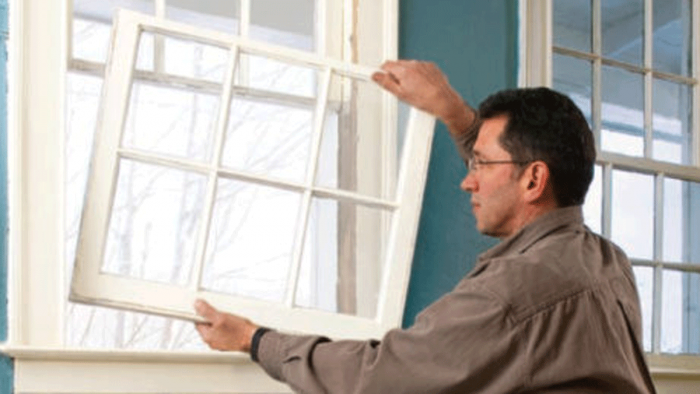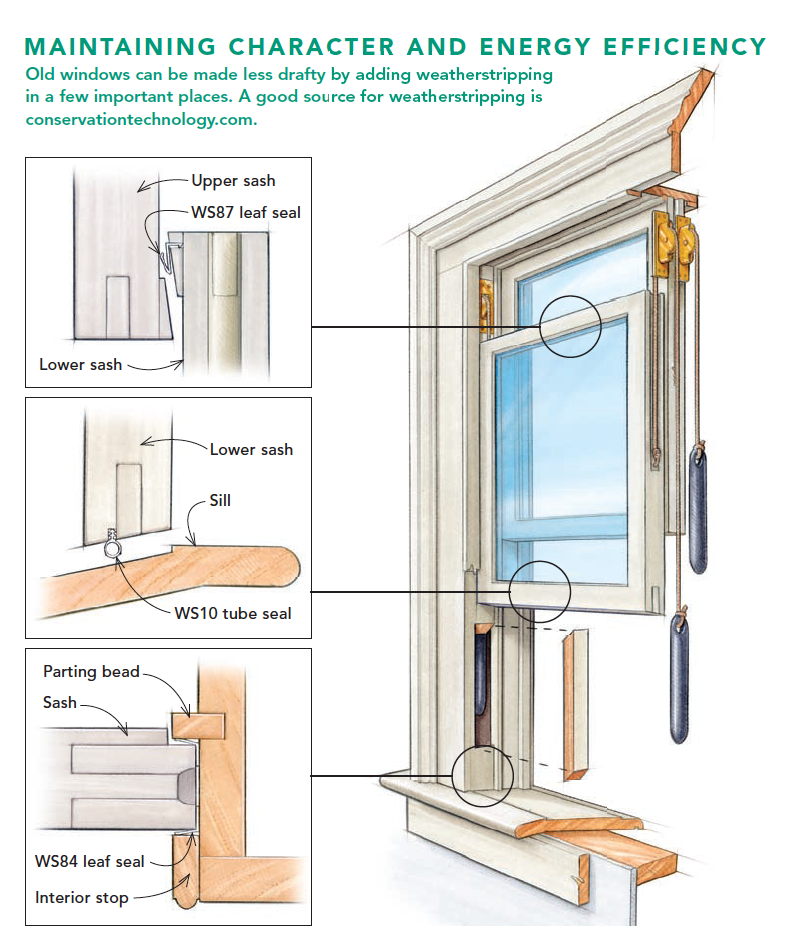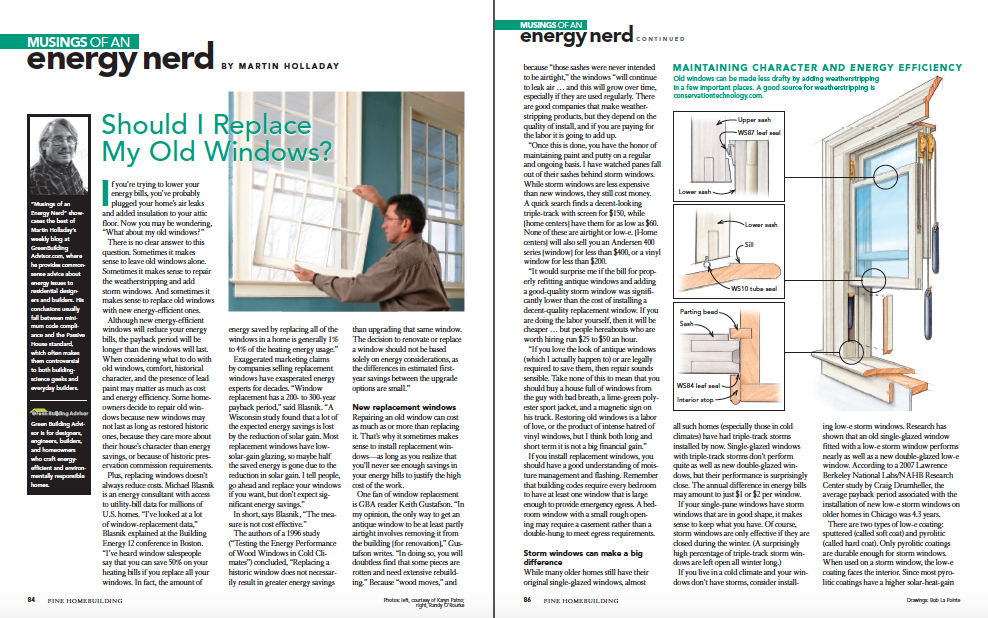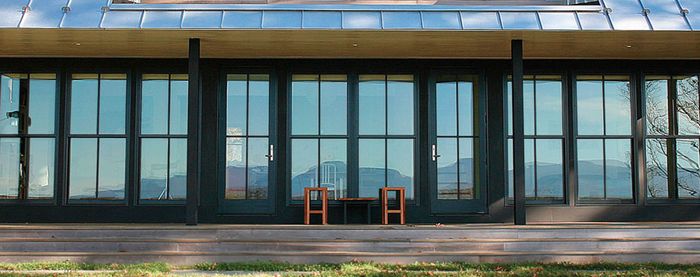Should I Replace My Old Windows?
Comfort, historical character, and the presence of lead paint may matter as much as cost and energy efficiency.

Synopsis: Martin Holladay answers the question of whether you should replace your old windows while considering costs and energy savings. He describes that while new energy-efficient windows will reduce your energy bills, the payback period will be longer than the windows will last, so it’s just as important to consider historical character and the presence of lead paint. Martin also describes the option of installing storm windows, and gives an overview of low-e windows and how to address high solar gain.
If you’re trying to lower your energy bills, you’ve probably plugged your home’s air leaks and added insulation to your attic floor. Now you may be wondering, “What about my old windows?”
There is no clear answer to this question. Sometimes it makes sense to leave old windows alone. Sometimes it makes sense to repair the weatherstripping and add storm windows. And sometimes it makes sense to replace old windows with new energy-efficient ones.

Plus, replacing windows doesn’t always reduce costs. Michael Blasnik is an energy consultant with access to utility-bill data for millions of U.S. homes. “I’ve looked at a lot of window-replacement data,” Blasnik explained at the Building Energy 12 conference in Boston. “I’ve heard window salespeople say that you can save 50% on your heating bills if you replace all your windows. In fact, the amount of energy saved by replacing all of the windows in a home is generally 1% to 4% of the heating energy usage.”
Exaggerated marketing claims by companies selling replacement windows have exasperated energy experts for decades. “Window replacement has a 200- to 300-year payback period,” said Blasnik. “A Wisconsin study found that a lot of the expected energy savings is lost by the reduction of solar gain. Most replacement windows have low solar-gain glazing, so maybe half the saved energy is gone due to the reduction in solar gain. I tell people, go ahead and replace your windows if you want, but don’t expect significant energy savings.”
In short, says Blasnik, “The measure is not cost effective.”
The authors of a 1996 study (“Testing the Energy Performance of Wood Windows in Cold Climates”) concluded, “Replacing a historic window does not necessarily result in greater energy savings than upgrading that same window. The decision to renovate or replace a window should not be based solely on energy considerations, as the differences in estimated first-year savings between the upgrade options are small.”
New replacement windows
Repairing an old window can cost as much as or more than replacing it. That’s why it sometimes makes sense to install replacement windows—as long as you realize that you’ll never see enough savings in your energy bills to justify the high cost of the work.

For more photos, drawings, and details, click the View PDF button below:






View Comments
I live in a house in a hot humid zone (Houston, TX) and the windows are aluminum framed single hung with no thermal break and no materials to replace the original seals. The windows are single pane glass. When the wind blows I can feel the air coming in 5 feet from the windows. So it seems that I will not see any significant difference if I replace these windows with a significantly better casement window?
I am not looking for some magical payback. I am simply trying to improve the sealing of the house, to reduce thermal bridging and solar gain.